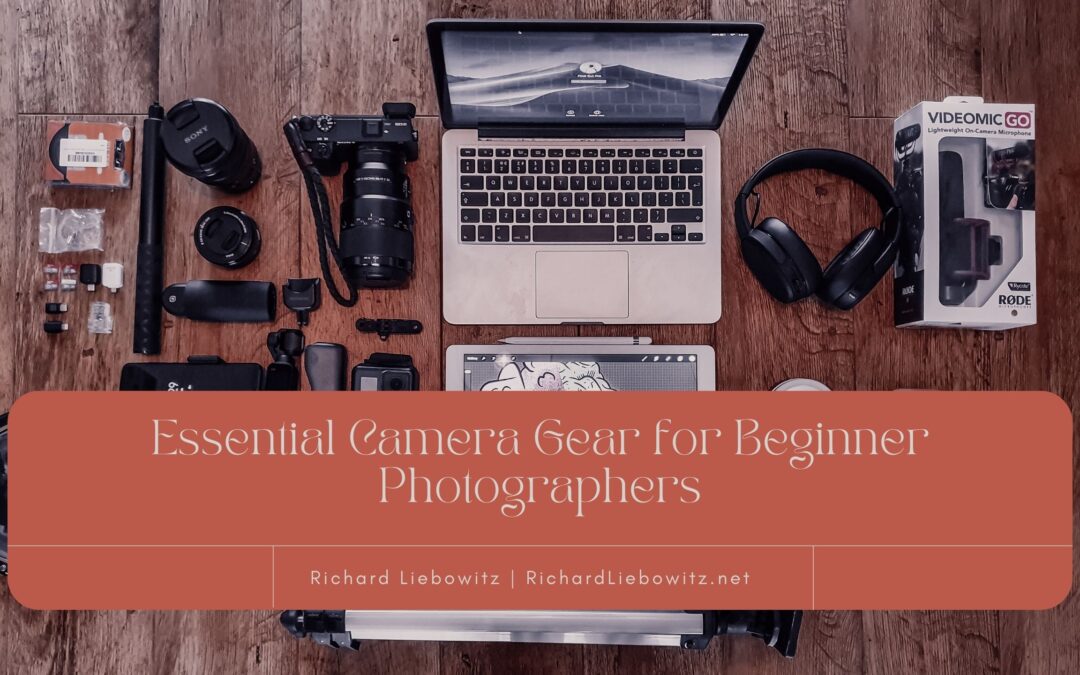Embarking on a photography journey can be an exciting and rewarding endeavor. Whether you’re passionate about capturing breathtaking landscapes, candid portraits, or vibrant street scenes, having the right camera gear is essential to help you translate your vision into stunning images. For beginner photographers, navigating the sea of equipment options can be overwhelming. Here’s a guide to the essential camera gear that will set you on the path to capturing memorable moments.
Camera Body
The heart of your photographic kit is, of course, the camera itself. An entry-level DSLR (Digital Single-Lens Reflex) or mirrorless camera is a great starting point for beginners. These cameras offer a good balance of performance and user-friendly features. Canon EOS Rebel series, Nikon D3000 series, or Sony Alpha a6000 are excellent choices for those stepping into photography.
Versatile Lens
Investing in a versatile lens is crucial for a beginner photographer. A standard zoom lens with a focal range of around 18-55mm is ideal for capturing a wide range of subjects. This lens type is suitable for landscapes, portraits, and everyday situations, providing flexibility for various shooting scenarios without constantly switching lenses.
Tripod
A sturdy tripod is a must-have accessory for any photographer, especially for beginners. It stabilizes your camera, allowing you to shoot in low light conditions, capture long-exposure shots, and maintain stability for sharper images. Look for a lightweight, easily adjustable tripod and durable for on-the-go shooting.
Camera Bag
You are protecting your gear while on the move is essential. A well-designed camera bag keeps your equipment safe and provides convenient storage and easy access. Look for a bag with padded compartments to safeguard your camera body, lenses, and accessories. Consider a backpack style for added comfort during outdoor shoots.
Memory Cards and Storage
Always remember the importance of having sufficient memory cards. High-resolution shooting can quickly fill up your storage space, so having multiple memory cards ensures you don’t miss a moment. Additionally, invest in an external hard drive or cloud storage for backing up your precious images, safeguarding against accidental loss.
Camera Strap
A comfortable and reliable camera strap is often overlooked but is a vital photographer accessory. It helps distribute the weight of your camera and prevents accidental drops. Choose a strap that suits your shooting style, whether a classic neck strap, a sling strap, or a wrist strap.
Lens Cleaning Kit
Maintaining the cleanliness of your camera lens is essential for capturing crisp and clear images. A basic lens cleaning kit typically includes a blower, lens brush, and cleaning solution. Regularly cleaning your lens ensures that dust and smudges don’t compromise the quality of your photographs.
External Flash
While many cameras have a built-in flash, an external flash provides greater control over lighting conditions. It’s beneficial for indoor or low-light situations, allowing you to avoid harsh shadows and capture more natural-looking images. Look for a flash with adjustable power levels for added versatility.
Camera Remote or Cable Release
A camera remote or cable release minimizes camera shake, such as long-exposure shots or self-portraits. It allows you to trigger the shutter without touching the camera, ensuring sharper images.
Editing Software
Post-processing is an integral part of modern photography. While numerous editing software options are available, Adobe Lightroom and Photoshop are industry standards. These tools provide powerful features for enhancing your images, adjusting exposure color balance, and fine-tuning details to achieve your desired results.
Building a solid foundation of essential camera gear is critical for beginner photographers looking to explore and develop their skills. Start with a reliable camera body and a versatile lens, and gradually add accessories that enhance your shooting experience. As you delve deeper into the world of photography, your gear collection can evolve to meet the demands of your creative vision. Remember, it’s not about having the most expensive equipment; it’s about understanding how to use what you have to capture moments that tell your unique story.

